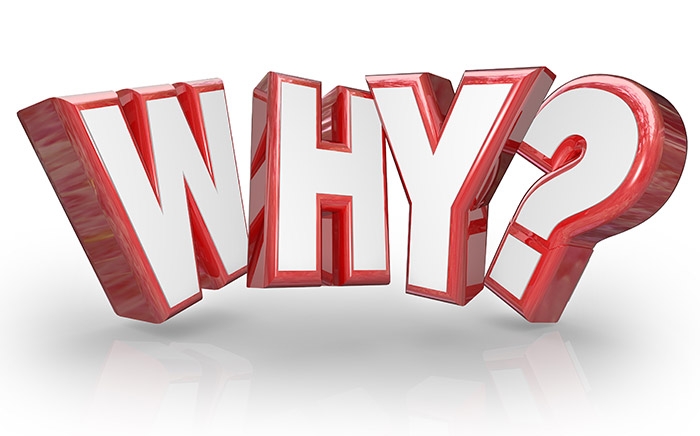Understanding Puerto Rico’s Legal Drinking Age: Regulations, Enforcement, and Practical Guidance
Introduction
Puerto Rico’s legal drinking age sets it apart from the United States mainland and many other territories. Understanding these regulations is essential for residents, visitors, parents, and anyone interested in nightlife, social gatherings, or travel to the island. This guide provides a comprehensive overview of the legal drinking age in Puerto Rico, enforcement practices, cultural context, and actionable steps to ensure compliance and responsible enjoyment. All information is based on verified sources, with practical instructions for accessing related services and resources.
Legal Drinking Age in Puerto Rico
The legal drinking age in Puerto Rico is 18 years old . This law applies island-wide, including bars, restaurants, nightclubs, and liquor stores. Anyone who is 18 or older may purchase, possess, and consume alcoholic beverages in Puerto Rico [1] , [2] , [3] , [4] , [5] .
This age requirement differs from the United States mainland, where the minimum legal drinking age is 21. The difference reflects Puerto Rico’s distinct legal and cultural approach to alcohol regulation [2] .
How Drinking Age Laws Are Enforced
Puerto Rican law strictly prohibits the purchase, possession, or consumption of alcohol by anyone under 18 . Enforcement is carried out by local authorities, and most establishments-such as bars, clubs, and restaurants-require valid photo ID before selling alcohol. Common forms of identification include:

Source: puertoricoplus.com
- Driver’s license
- State-issued ID card
- Passport for international visitors
If a minor is caught consuming or attempting to buy alcohol, penalties may include fines or even jail time, depending on the circumstances [2] . Establishments that violate the law by serving minors risk significant fines and possible loss of their liquor license.
Practical Steps for Compliance
To ensure compliance with Puerto Rico’s drinking age law:
- Always carry a valid photo ID if you intend to purchase alcohol.
- If you are under 18, do not attempt to buy, possess, or consume alcohol.
- Establishments should train staff to check IDs and refuse service to underage individuals.
- If unsure about local regulations, ask venue staff for clarification or consult local law enforcement.
For business owners, consider enrolling staff in responsible vendor training programs-these are sometimes available via local governmental agencies or through hospitality industry associations.
Differences From U.S. Mainland Law
Puerto Rico’s drinking age is lower than the U.S. mainland’s . In the United States, the National Minimum Drinking Age Act requires states and territories to enforce a minimum purchasing age of 21, with penalties for non-compliance. However, Puerto Rico retains a legal drinking age of 18 due to its unique legal status and local legislation [4] .
Travelers from the mainland should be aware that while 18 is the legal age in Puerto Rico, some upscale venues or resorts may voluntarily set higher entry ages (sometimes 21) for admission, especially at nightclubs or special events [1] . Always check with individual venue policies before planning your visit.
Blood Alcohol Content (BAC) and Driving
Puerto Rico enforces strict laws regarding drinking and driving. For drivers aged 18 to 20, the legal BAC limit is less than 0.02 g/dL , which is lower than the typical adult limit. This means even small amounts of alcohol can put young drivers over the legal limit [5] .

Source: puertoricoplus.com
For those 21 and older, standard BAC limits apply. DUI enforcement is active, and penalties for driving under the influence include fines, license suspension, mandatory education, and possible imprisonment. To stay compliant:
- If you are under 21, avoid driving after consuming any alcohol.
- Designate a sober driver or use public transportation or rideshare services.
- Be aware of increased police checks during holidays and festival periods.
If you require information on DUI laws, contact the Puerto Rico Traffic Safety Commission or search for “Puerto Rico DUI laws” for official resources and guidance.
Cultural Context and Responsible Drinking
Alcohol plays a prominent role in Puerto Rican social life, from family gatherings to festivals and nightlife. The lower drinking age reflects a cultural norm of moderate, responsible consumption rather than prohibition [3] . However, authorities and community organizations actively promote:
- Responsible drinking behaviors
- Education on risks associated with excessive consumption
- Programs to prevent underage drinking
Examples include school-based initiatives, public awareness campaigns, and enforcement of age restrictions at events.
Case Study: Nightlife in San Juan
San Juan’s vibrant nightlife draws both locals and tourists. Popular venues routinely check IDs at the door, and most partygoers are aware of local age laws. Many clubs offer events for young adults (18+) while reserving certain nights for those 21 and older. Tourists are advised to verify age policies before attending events, especially those involving alcohol promotions or open bars [1] .
What Happens If a Minor Drinks Alcohol?
Minors found drinking alcohol in Puerto Rico are subject to legal penalties, which may include fines or jail time depending on severity and circumstances [2] . Parents and guardians may also face legal repercussions if they knowingly allow minors to consume alcohol. Businesses can lose their licenses if caught serving underage patrons.
If you or someone you know is affected by underage drinking penalties, contact local law enforcement or legal aid services for guidance. Search for “Puerto Rico juvenile alcohol laws” for official resources.
How to Access Alcohol Legally in Puerto Rico
To purchase alcohol legally in Puerto Rico:
- Ensure you are at least 18 years old.
- Carry valid government-issued photo identification.
- Visit licensed establishments such as supermarkets, convenience stores, bars, or restaurants.
- Comply with venue-specific policies-some clubs or events may require you to be 21 or older for entrance.
If you are unsure about local laws or policies, ask staff members or consult official sources. For tourism-related questions, search for “Puerto Rico tourism board alcohol policy.”
Alternative Pathways and Responsible Enjoyment
If you are visiting Puerto Rico and wish to enjoy the local nightlife responsibly, consider the following alternatives:
- Attend venues that cater specifically to young adults (18+).
- Explore alcohol-free events, which are common during cultural festivals.
- If you are traveling with minors, plan family-friendly activities and avoid establishments where alcohol is the primary focus.
For those interested in learning more about Puerto Rico’s alcohol laws or seeking legal guidance, contact local government offices, search for “Puerto Rico alcohol regulations,” or consult the Puerto Rico Department of Health for up-to-date information.
Key Takeaways
Puerto Rico’s legal drinking age is 18 , providing a unique context for social life and travel compared to the U.S. mainland. Enforcement is strict, with penalties for underage consumption. Responsible enjoyment and compliance with local law are essential for a positive experience.



